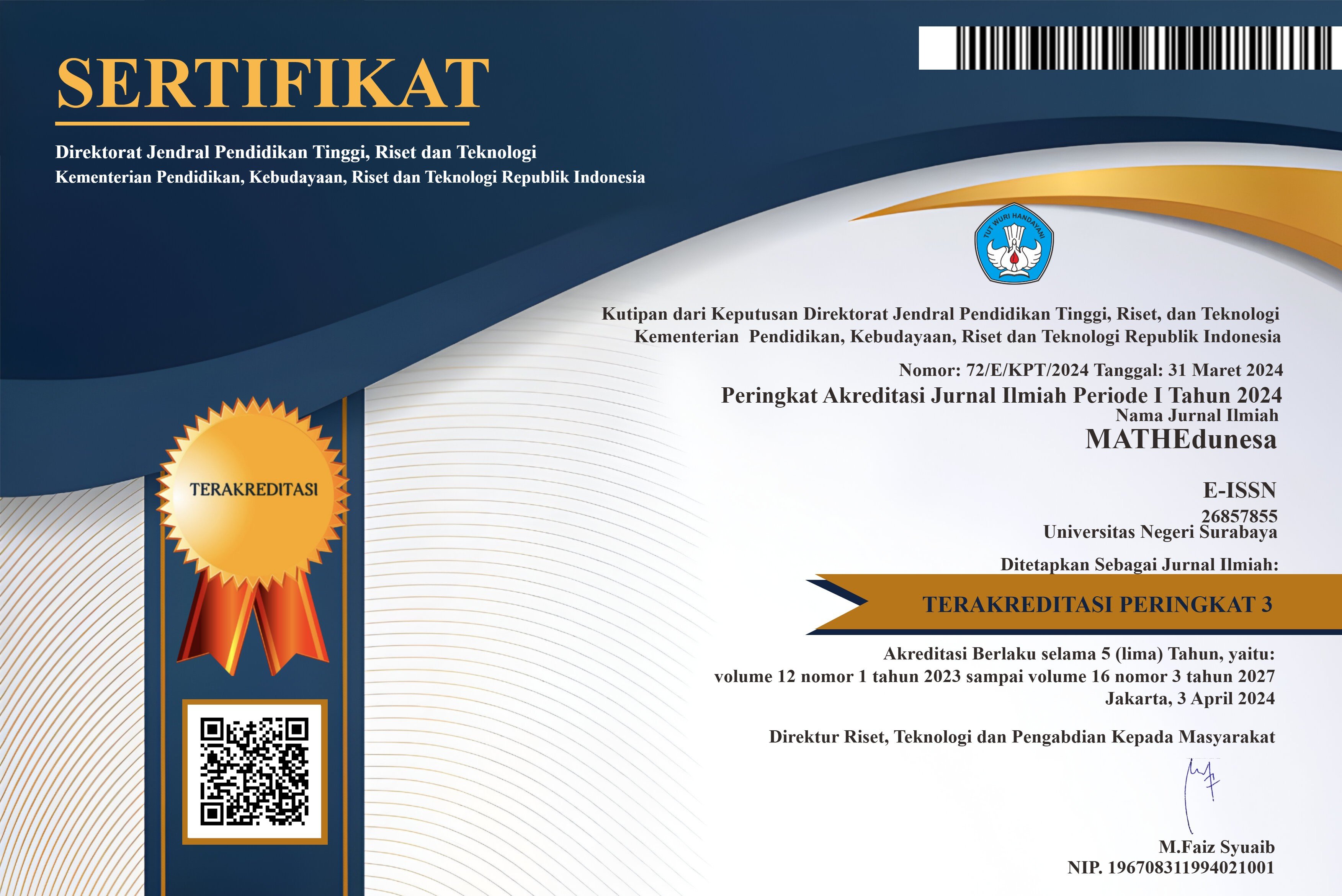MISCONCEPTION ANALYSIS OF STUDENTS WITH IMPULSIVE-REFLECTIVE COGNITIVE STYLE IN SOLVING PATTERNS OF NUMBERS PROBLEMS
DOI:
https://doi.org/10.26740/mathedunesa.v11n2.pPDF_525-535Abstract
In the online learning process since March 2020, many students have experienced misconceptions in solving the questions given by the teacher, including mathematics learning activities. In online learning activities students are required to be able to understand the material quickly with all the limitations that students have so that misconceptions arise in students. This misconception can occur, one of which is influenced by differences in students' cognitive styles. This study aims to analyze students' misconceptions in solving problems related to number pattern material. The analysis was carried out on 1 subject with impulsive cognitive style and 1 subject with reflective cognitive style with the same learning outcomes. This type of research is descriptive research with a qualitative approach. Supporting instruments include the Matching Familiar Figure Test (MFFT) and a written test consisting of 9 multiple choice questions which include sub-materials of arithmetic number series, geometric number series, letter number series, and contextual questions related to PATTERNS OF NUMBERS with 4 answer choices. To analyze students' misconceptions, the Three Tier test method is used, namely the first tier consists of number pattern material questions in the form of multiple choice with 4 answer choices, the second tier is the column for students' reasons for giving answers, and the third tier is a column of students' confidence levels using the CRI method, and continue with the interview. The results showed that students with impulsive cognitive style experienced classificational, correlational, and theoretical misconceptions. Meanwhile, students with reflective cognitive style are correlation misconceptions and theoretical misconceptions. To anticipate the occurrence of misconceptions, teachers should provide variations in the learning process, so that students can focus on the learning process and teachers often check students' understanding of concepts.
Keywords: Number pattern, Misconception, Cognitive Style, Three Tier, CRI
Downloads
Downloads
Published
Issue
Section
 Abstract views: 267
,
Abstract views: 267
, PDF Downloads: 271
PDF Downloads: 271




